When a game manages to make an impact with fans, those fans want to show their love in a variety of ways. One way is to make new games inspired by the games they loved and one other way to create fangames based on the IP. When the latter happens, IP holders will often step in and shut down the project, something Nintendo is known for. But these games are not necessarily gone for good though, as sometimes the fan developers will end up turning the project into a new game inspired by the original through and that they can fully own. This is a concept known as Filing Off The Serial Numbers and here are five instances of this happening.
Oddity
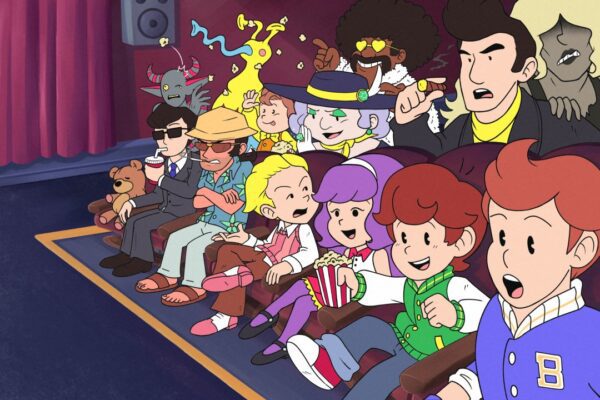
Let’s start out with a game that is not out yet and is still in development. Oddity is an RPG designed as a throwback to classic 16-bit RPGs of a more offbeat nature. The game is set in an area called Pleiades in the year 197X and tells the story of a young boy named Travis, as well as Leo who is the leader of a biker gang, a fortune-teller girl named Meryl, and a young boy named Floyd who must deal with a strange group known as the Modern Men.
Now, one look at the game will draw many comparisons to the Mother series from Nintendo, and there is a very good reason for that. The team behind Oddity were in fact making a fan game based on the series entitled Mother 4. This was because, after the release of Mother 3, series creator Shigesato Itoi declared he was done with the series and instead encouraged developers to make new games in the spirit of the Mother series.
Obviously, this was a case of taking things a bit too literally, but Mother 4 was an ambitious fangame and many followed the development with interest. The game was planned for a 2014 release but kept getting pushed back by a year, every year until 2017. That was the year the development of Mother 4 as it was, came to an end and Oddity came to be.
In 2017, the dev team announced Mother 4 would be rebranded as an original IP to stand on its own and in 2020 received the name Oddity. The game has no release date yet besides the developers stating “when it is ready”, but so far many are excited for when they will finally get a chance to play.
So why did they rebrand? Was it due to a cease and desist? Well, surprisingly no. The Oddity team rebranded on their own due to having put so much work into the game and deciding they did not want to risk a cease and desist and believed the game could stand on its own merits. This decision was very warmly received by fans, who now no longer need to worry about Nintendo shutting down the project, and are now able to see the devs not have to worry about being shut down anymore.
So in this case, we have a happy ending for all….assuming the game is actually decent when it releases
Them’s Fightin Herds
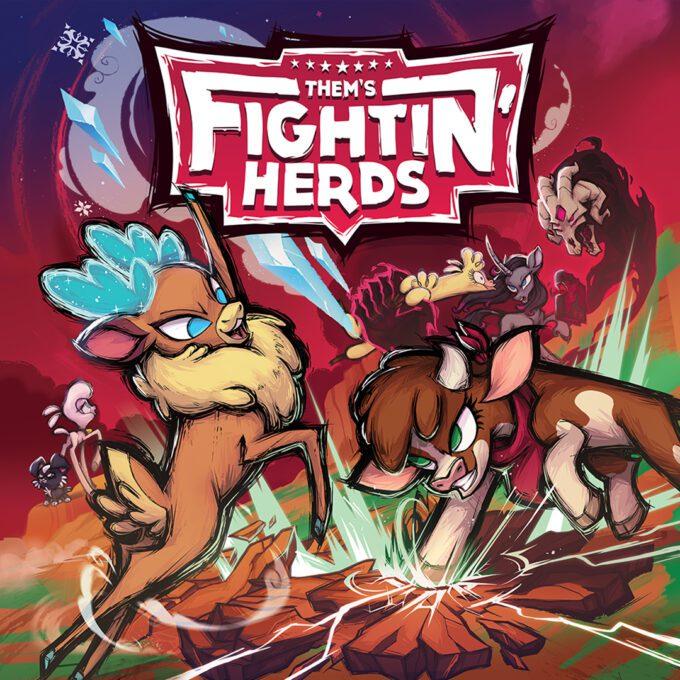
My Little Pony Friendship is Magic is a series that has a surprisingly diverse fanbase and that is both its biggest strength and greatest weakness. The series was helmed by veteran animator Lauren Faust, who previously worked on such series as Foster’s Home for Imaginary Friends and The Powerpuff Girls, before working with Hasbro on the revival of the classic toy line IP.
When Lauren Faust was announced to be working on the series though, some took issue with the fact that such a well-respected animator was reducing herself to a franchise they felt was beneath her. This led to many trashing the series online, further leading to sites like 4chan, taking an interest in response and helping spread the interest from older audiences and thus led to the Brony fandom, for better or for worse.
With an explosion of fandom comes many talented fan creators and some came to work together on a fan game entitled My Little Pony: Fighting Is Magic, which as you can guess from the title was a fighting game based on the series. This fan project gained a lot of attention over the course of its development, but it was when the game made an appearance at EVO that everything changed. EVO is the largest fighting game tournament in the world, and a lot of people suddenly became aware of the project. This would prove to be the game’s undoing in that format as Hasbro would soon send a cease and desist to the developers to shut the project down.
Many believed that Fighting Is Magic was shut down because of how it showed the characters in a fighting game, but the actual reason turned out to be that Hasbro could simply no longer turn a blind eye to the project as it was getting too big. Luckily the story does not end there, the team developing the game, Mane6 decided to turn their fan game into a full-on project, and this gained the attention of the aforementioned Lauren Faust who contributed artwork and designs to the game, now free of corporate mandates. The game was released as Them’s Fightin Herds and was very well received by fighting game fans for its gameplay mechanics, lobby system and single-player elements in addition to great online gameplay.
As for Hasbro? They went on to make a new My Little Pony series that while not the same sensation as Friendship is Magic, has still gained a sizeable fandom.
Freedom Planet
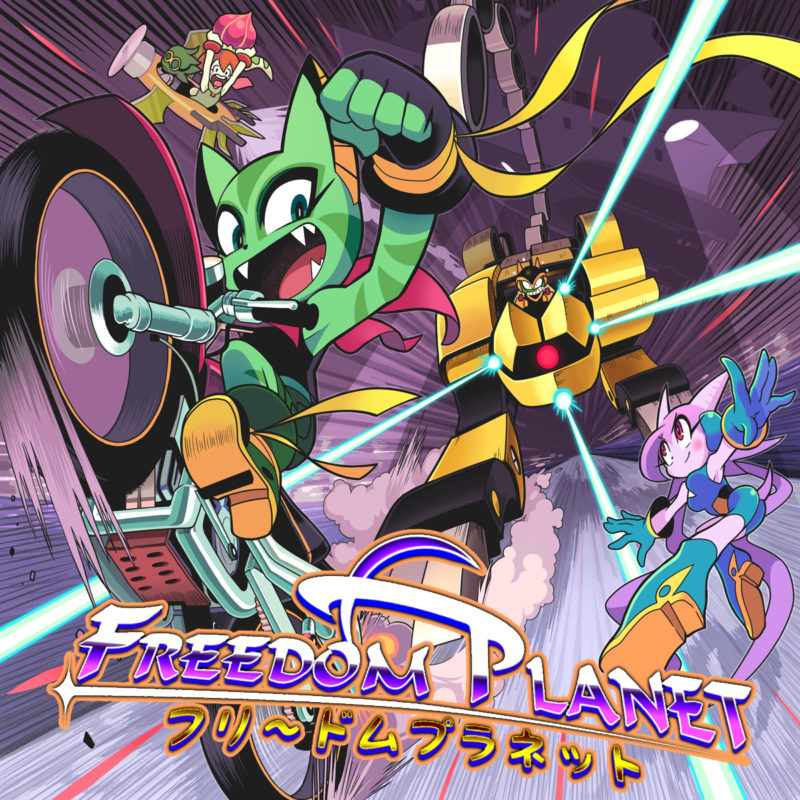
Sonic The Hedgehog and fan games go hand in hand together. There are competitions for the best Sonic fan games and Sega even allowed for official mod support in the Steam release of the Mega Drive collection to enable fan games to be added…..although this ended up being used for *ahem* other things.
So, when a Sonic The Hedgehog 3 fan game was in development, nothing seemed out of the ordinary, this was the case when Sabrina DiDuro began working on a fan game based on Sonic The Hedgehog 3 that added in characters created by DeviantArt user Ziyo Ling for its main cast. Sonic fan games have always had other characters placed in them, such as Sally from the cartoon and even Mario. So, why the change? After all, it was not like Sega was going to send a Cease and Desist, after all this was not a Streets of Rage fan remake.
Well, the reason was simply that Sabrina lost interest in creating a fan game. There was no DMCA, no cease and desist, just a desire to do something she could own. Over time Sabrina kept developing the game into something that would stand on its own, but in which the roots of Sonic the hedgehog could be seen, and the result was Freedom Planet. As time went on, the game attracted a following and saw a release on PC and later consoles to praise and good sales.
Playing the game now, the influence of Sonic the hedgehog 3 is very apparent, both in terms of stage design and general gameplay. It does manage to do its own thing, however, and introduced a very detailed storyline and its own gameplay mechanics that helped it stand out far better.
For instance, the game uses a hit point meter instead of a ring-based health system and the hit point meter can be refilled by collecting red leaves found throughout the level or when defeating enemies. Another way the game set itself apart was by using an energy meter that lets players use a special attack depending on which character is being used. Sabrina took several fan suggestions into consideration when making Freedom Planet, with the final product described by her as “a nod to ’90s-style Japanese platform games, like Sonic, Mega Man, and a little bit of Gunstar Heroes”
The game was funded via a Kickstarter campaign and thankfully there was no Kickscammer situation here. The campaign was a success, and the backers got their rewards, and this would have no doubt made it easier for when the time came to Kickstart a sequel. However, Freedom Planet 2 would end up being completely self-funded by Sabrina’s studio Galaxy Trail and saw a release in September of 2022, helping what was once a fan game, become its own franchise.
The Forgotten City
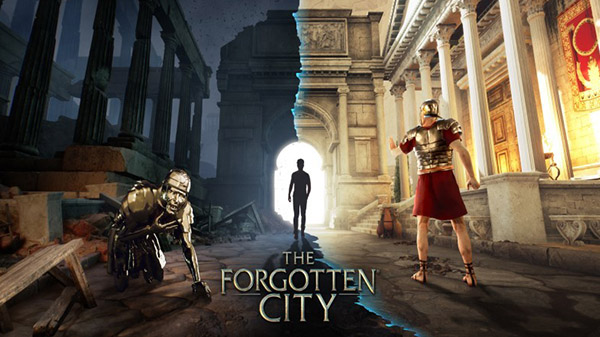
Something a bit different here as this is not about a fan game per se but rather a mod. We all know about The Elder Scrolls V: Skyrim by now, the game has been ported to almost everything under the sun, with versions made for consoles, PC, VR systems and even a version on Amazon Alexa of all things. This is not getting into fan ports either as fans have managed to get the game running in some form on a pregnancy test, much like with Doom.
One thing that has made Skyrim so appealing over the years is its modding community, with the game having received thousands of mods covering things from weapons, new characters, new quests and even bringing older games into Skyrim. This isn’t even getting into the mods for, shall we say, older audiences.
One mod that grabbed attention upon its release was The Forgotten City, which used a time travel element, and featured deep characterization, well-designed puzzles and an award-winning story. That’s no joke either as the mod won an award from the writer’s guild of Australia for the Interactive Media category. The mod explored the relationship between humanity and its laws and did so in a very unique way.
The Forgotten City used its story and mechanics, which I won’t spoil here as you should really try it out, to explore elements of Elder Scrolls lore that the developers had not touched on and posed interesting questions to the player. It became a hit among gamers and one of the most popular mods to install in the game and became a hit on the Xbox version.
Seeing the positive reaction, Nick Pearce, who had spent 1700 hours developing the mod, decided he could do more with the idea. He quit his job and founded a studio called Modern Storyteller, hiring other developers along the way. Over the course of a hellish 4-and-a-half-year development cycle, the mod was turned into a full game with its own world apart from The Elder Scrolls.
Now with professional voice actors, a new setting and score, and a script twice the length of the mod, The Forgotten City saw life in 2021 as an Unreal Engine 4 game for all platforms, even receiving a cloud version on Switch, which surprisingly enough has the highest score on Metacritic. The game was positively received on every platform and won an Excellence in Narrative award at the Australian Game Developers Awards in 2021.
Both the mod and full game are available, and both stand out in their own ways, so in this case, everybody wins.
Retro City Rampage
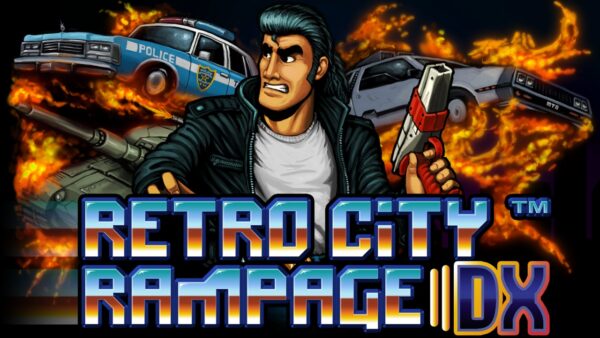
Grand Theft Auto is one of the biggest franchises in gaming today. A release in the series is a major event, and even the utterly butchered ports of the 3D trilogy have sold in excess of ten million copies despite being hailed as one of the worst game collections in recent years.
The series has always attracted attention for its portrayal of crime and violence and noted busybody Jack Thompson led a crusade against the series in the USA, claiming it inspired violence, before getting disbarred over accusations of professional misconduct. Things really took off with the third entry though, where the series made the jump from a top-down perspective to a fully 3D open world. It was one of the definitive games of its era and its influence can be seen in everything from Saint’s Row to Mad Max and No More Heroes.
In 2002, developer Brian Provinciano made his own development kit for the Nintendo Entertainment System and attempted to recreate Grand Theft Auto III, with 8-bit graphics with the name Grand Theftendo. This is what we now call a demake, and is a topic that has become extremely popular as of late
Brian would develop software tools over the years, that helped him get past the technical limitations of the hardware but would eventually move his project to the PC. As things got underway, he began to add things from other games like objects and characters and decided this could be a good project to make into a full game, albeit one that would need to become an original IP.
The resulting project was Retro City Rampage, an indie game released in 2012 to great acclaim. The title took from multiple 8-bit games, such as Metal Gear, Super Mario Bros, Bionic Commando, TMNT, and of course River City Ransom.
There were numerous pop culture references to everything from Back To The Future, Batman, Sonic The Hedgehog, and even to Canadian children’s Television host Phil Guerrero. The game retained its GTA roots, however, and became a brilliant blend of genres that managed to really take off. What is notable though is ROM City Rampage, a port of the game to NES Homebrew that is playable within the main game itself. Brian may not have released the demake he intended, but he managed to make one, nonetheless.
And there you have it. What other fan games that become original IP would you like us to discuss going forward?

